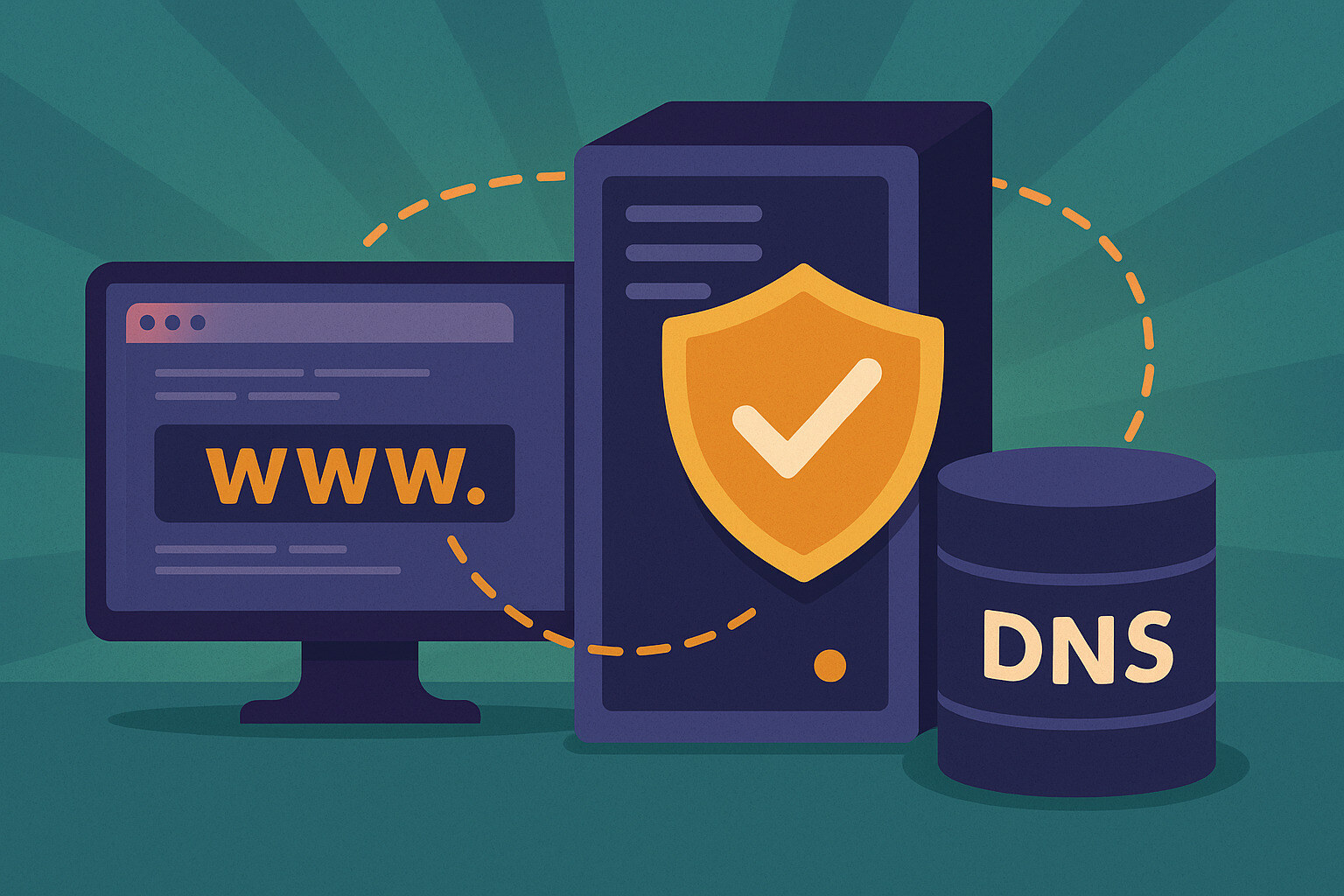Why a Caching DNS Server Is Important in a Network
Fast and reliable domain name resolution is critical for any network, especially when used in production servers or large organizations. This is where the importance of a caching DNS server comes in. By caching, the system does not need to repeatedly query external DNS servers for the same domain name, resulting in faster response times and reduced bandwidth usage. Configuring a caching DNS server with Unbound enhances this setup by providing a secure, efficient, and easy-to-manage solution tailored for performance and reliability.
On BSD systems, Unbound is one of the most trusted caching DNS servers. It is known for its speed, simple configuration, and high level of security. For administrators, setting up Unbound is a practical step to improve network performance and protect users against malicious DNS responses.
For systems that rely heavily on multiple DNS queries, configuring a caching DNS server using Unbound is one of the best solutions to achieve a smoother and more efficient network experience.
How a Caching DNS Server Works
A caching DNS server stores the results of DNS lookups for a specific period known as Time-To-Live (TTL). When a new request is made for the same domain name, it no longer needs to send the query to external DNS servers. Instead, the cached record is immediately provided by the server.
Aside from speed, caching also reduces the load on upstream DNS servers. In networks with thousands of devices, this helps prevent external resolvers from being overloaded and maintains a stable connection.
With Unbound, caching automatically works as soon as the server is properly configured. No complicated setup is required, making it a preferred choice among BSD administrators.
Why Choose Unbound for BSD Systems
Unbound was designed to be fast, secure, and easy to manage. It is one of the default DNS resolvers in many BSD distributions due to its compatibility and regular security updates.
The design of Unbound focuses on simplicity. Even beginners in DNS configuration can easily understand its configuration file structure. Advanced users, on the other hand, can take advantage of many options for fine-tuning and security hardening.
Another major reason why Unbound is often chosen is its built-in support for DNSSEC, which adds extra protection against DNS spoofing and other types of attacks.
Preparing the System Before Installing Unbound
Before installing Unbound, ensure that your FreeBSD or OpenBSD system is updated. New updates bring the latest security patches and performance improvements, which are essential for a DNS server.
It is also important to verify that no other DNS services are running on the same port, typically UDP and TCP port 53. Conflicts with other DNS servers can cause service interruptions and failed queries.
For production environments, allocating dedicated resources for Unbound is recommended. Although lightweight, having stable hardware resources ensures consistent performance, especially when handling a large number of queries.
Installing Unbound on FreeBSD
On FreeBSD, installation is straightforward. Simply run pkg install unbound. After installation, the main configuration file can be found in /var/unbound/unbound.conf.
You can enable Unbound to start at boot by adding unbound_enable=”YES” to /etc/rc.conf. This way, the caching DNS server automatically runs every time the system restarts.
Before starting the service, review the default configuration and create a backup if necessary. While the default setup already works for caching, tuning it for better performance is recommended.
Installing Unbound on OpenBSD
On OpenBSD, Unbound is included as the default resolver in newer versions, but it can still be manually configured for advanced setups. If it is not yet installed, you can use pkg_add unbound.
The configuration file is located in /var/unbound/etc/unbound.conf. Similar to FreeBSD, you only need to enable the service by adding it to the system’s startup configuration.
Because OpenBSD is security-focused, many default security settings are already enabled. However, these can still be adjusted depending on the requirements, especially when used in large networks.
Configuring Basic Caching in Unbound
For basic caching setup, a simple configuration is enough. You only need to specify listening interfaces, access control, and caching parameters in unbound.conf. For instance, you can configure the server to listen only within the local network for safer access.
The cache-min-ttl and cache-max-ttl parameters help control how long records stay in cache. Balancing a higher TTL and updated records is important for maintaining both performance and accurate DNS responses.
Once edited, restart the Unbound service and test it using simple DNS queries to ensure caching works properly.
Adding DNSSEC for Stronger Security
One of Unbound’s biggest advantages is its built-in DNSSEC validation. This ensures that responses from upstream DNS servers are not modified or spoofed by attackers.
To enable DNSSEC, you need to define the root trust anchor in the configuration file. Once enabled, Unbound automatically rejects invalid responses, giving users additional protection.
For networks handling sensitive data, DNSSEC is not just optional—it is a requirement to maintain the integrity of communications.
Performance Tuning for Large Networks
In large networks, additional tuning may be needed to handle thousands of queries per second. Adjusting msg-cache-size, rrset-cache-size, and num-threads helps improve query processing speed.
You can increase cache size depending on the available server memory. This allows more DNS records to be stored, reducing the number of queries sent to upstream servers.
For high-performance environments, running multiple Unbound instances in a load-balanced setup is an excellent solution for more stable service.
Monitoring and Regular Maintenance
Regular monitoring is crucial to ensure that the caching DNS server runs smoothly. Use unbound-control stats to view performance metrics such as hit rates and query counts.
Regular updates for Unbound are also important for applying security patches and new features. In production systems, schedule updates and restarts during non-critical hours to avoid service disruption.
Checking logs provides valuable insights into possible problems, including invalid DNS responses or potential security threats.
Unbound as a Reliable Solution for Caching DNS
Unbound proves that a caching DNS server does not need to be complicated to be effective. With proper configuration, it provides fast response times, lower latency, and safer DNS queries.
On both FreeBSD and OpenBSD, Unbound has proven to be reliable for both small and large-scale deployments. Its combination of performance, simplicity, and security features makes it the preferred choice for many system administrators.
As the demand for fast and secure network services continues to grow, configuring a caching DNS server with Unbound is a step toward a more efficient and secure digital environment.










No Responses